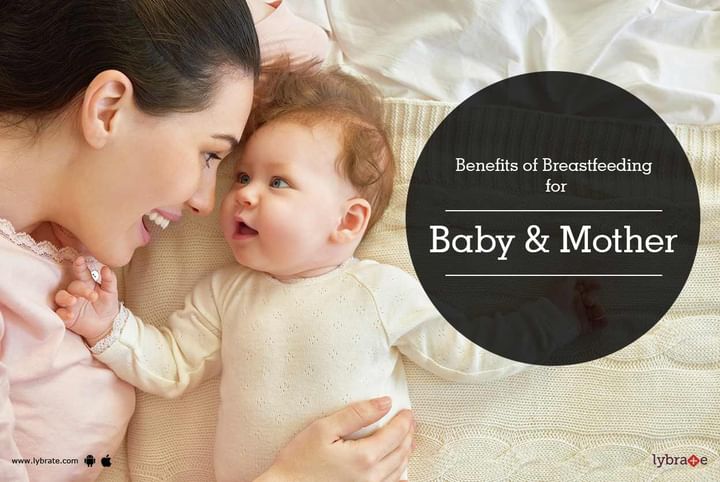Benefits of Breastfeeding for Baby & Mother
Breastfeeding is best for the baby and its benefits extend well beyond the paradigm of basic nutrition. Breast milk contains all the vital vitamins and nutrients, which a baby needs in the first six months of life. It is fully loaded with disease fighting substances, which protect baby from illness. Many international paediatric organisation recommend exclusive breastfeeding for the first six months and recent research reports have proven that breastfeeding is good for both mother and the baby.
Breastfeeding protects the baby from a long list of illnesses, such as ear infections, lower respiratory illnesses, stomach disorder and meningitis and are less severe when they do happen. Breast milk adapts as the baby grows to meet the changing needs. Breastfeeding builds a strong emotional bond between the mother and the baby and it has long term benefits lasting right into adulthood.
The first milk of the mother contains high concentrations of secretory immunoglobulin A (IgA), which guards against invading germs by forming a protective layer on the mucous membranes in baby's intestines, nose, and throat. Mother's body responds to pathogens (virus and bacteria) that are in her body and makes secretory IgA, which is specific to those pathogens, creating protection for the baby based on to whatever mother is exposed.
The antibodies in breast milk gives a baby's immune system a boost and also helps children avoid type 1 and type 2 diabetes, high cholesterol and inflammatory bowel disease that strike later in life. Babies who were not breastfed run the risk of developing Crohn's disease and ulcerative colitis.
Breastfeeding boosts child's intelligence. Surveys have shown that premature infants with extremely low birth weight who receive breast milk shortly after birth improved their scores of mental development at eighteen months when compared with premature infants who weren't given breast milk. The emotional bonding happening during breastfeeding contributes to some of the brainpower benefits. Breastfeeding lowers the risk of sudden infant death syndrome (SIDS). It reduces a child's risk of becoming obese as a teen or adult as the breast milk contains less insulin, which stimulates creation of fat. The high content of leptin in the milk regulates appetite and fat.
Breastfeeding triggers the release of the hormone oxytocin that promotes relaxation and nurturing. Oxytocin released while nursing also helps your uterus contract after birth, resulting in less postpartum bleeding. It reduces stress level and the risk of postpartum depression. Research studies show that breastfeeding results in changes in breast tissue and lactation reduces the production of oestrogen, which reduces the risk of breast and ovarian cancer. It also reduces the risk of osteoporosis and cardiovascular disease.



+1.svg)
